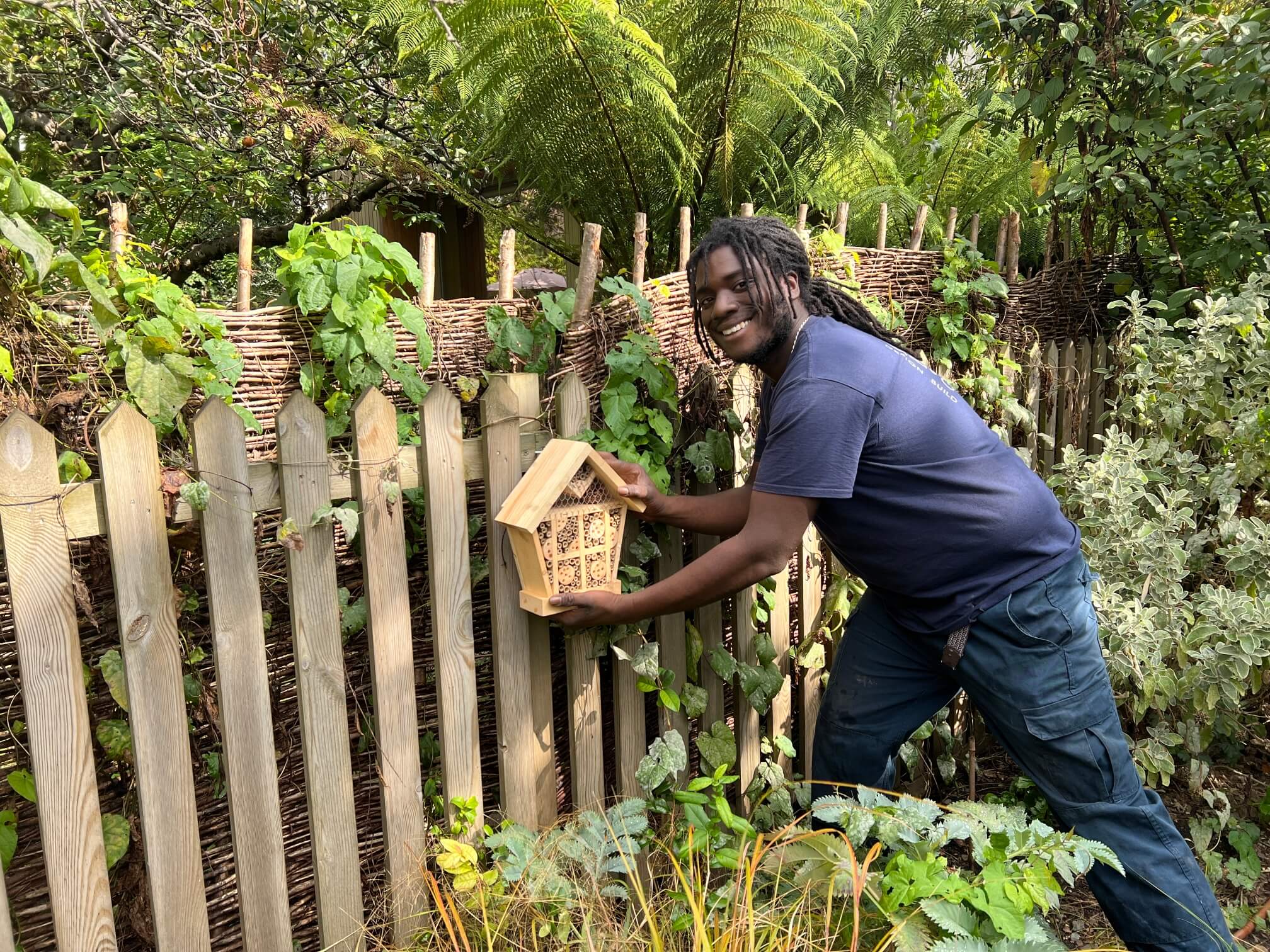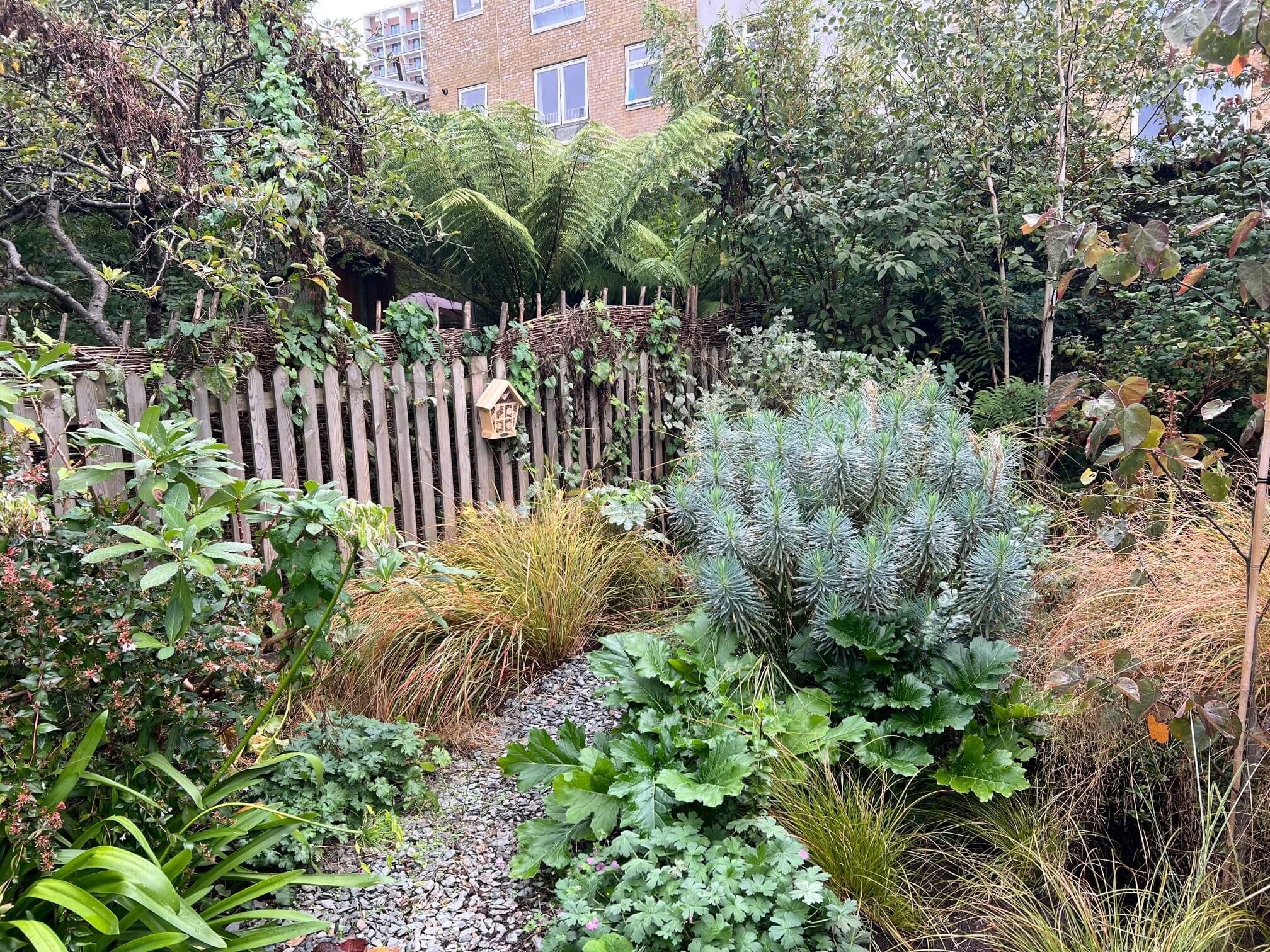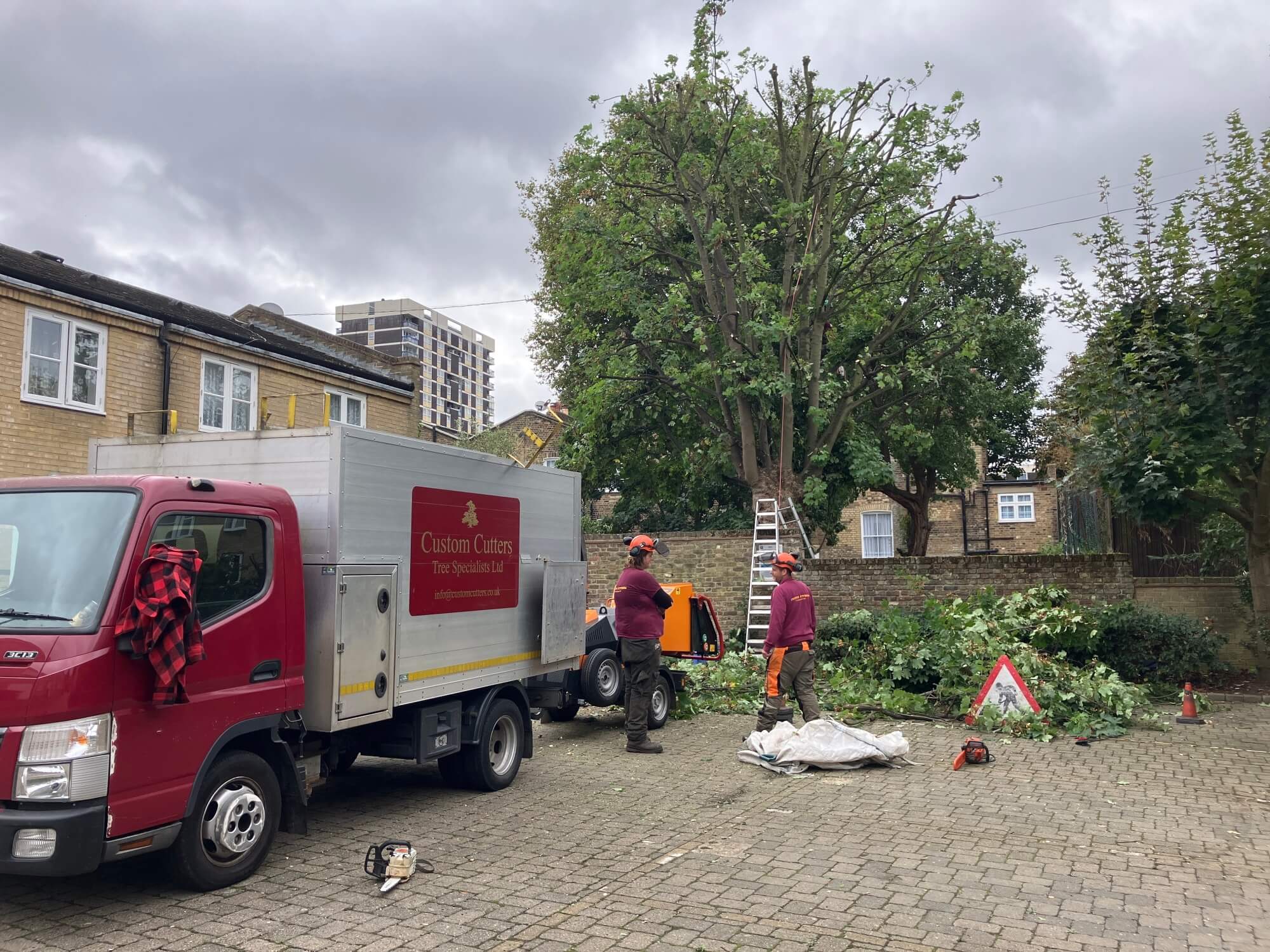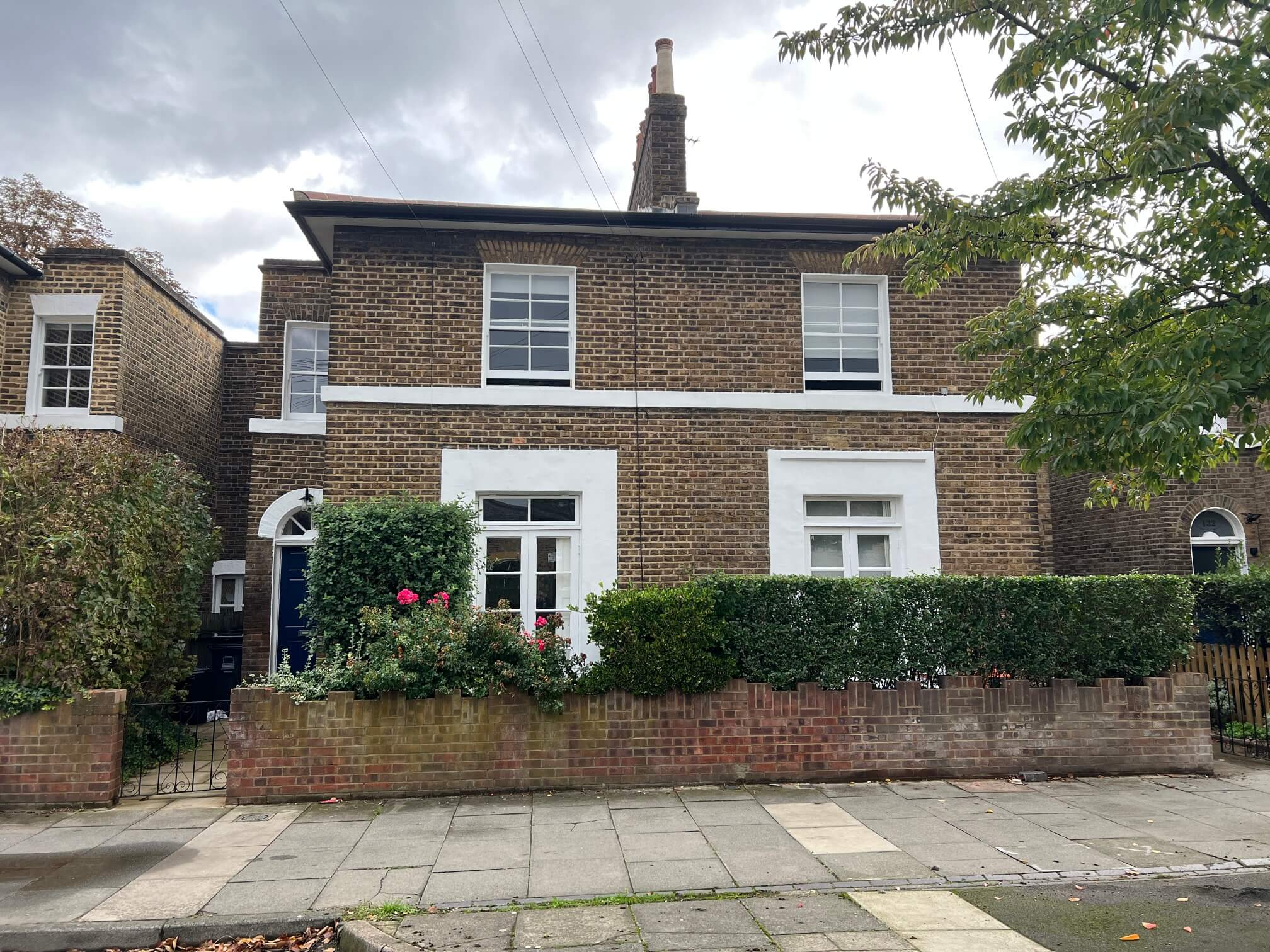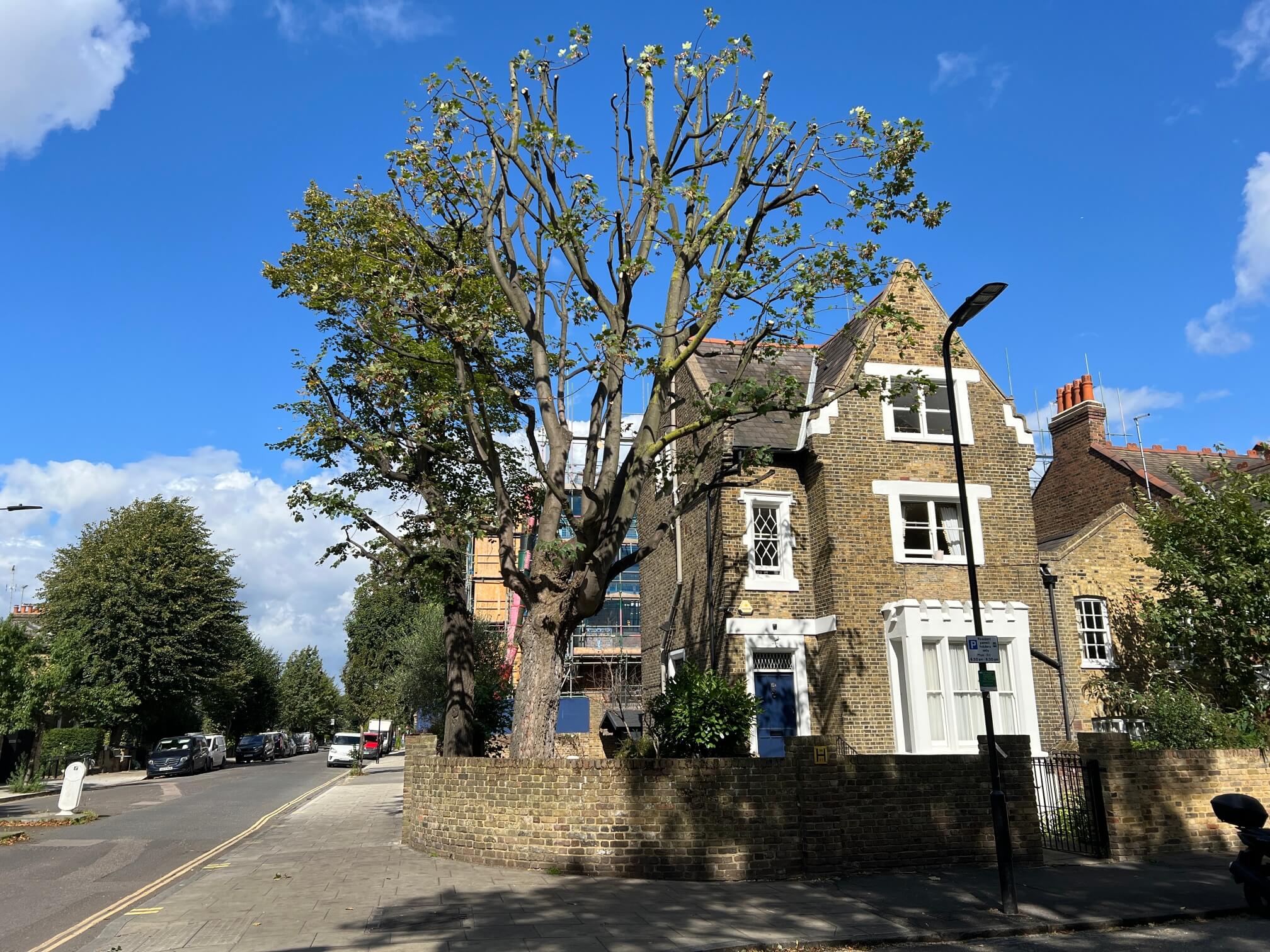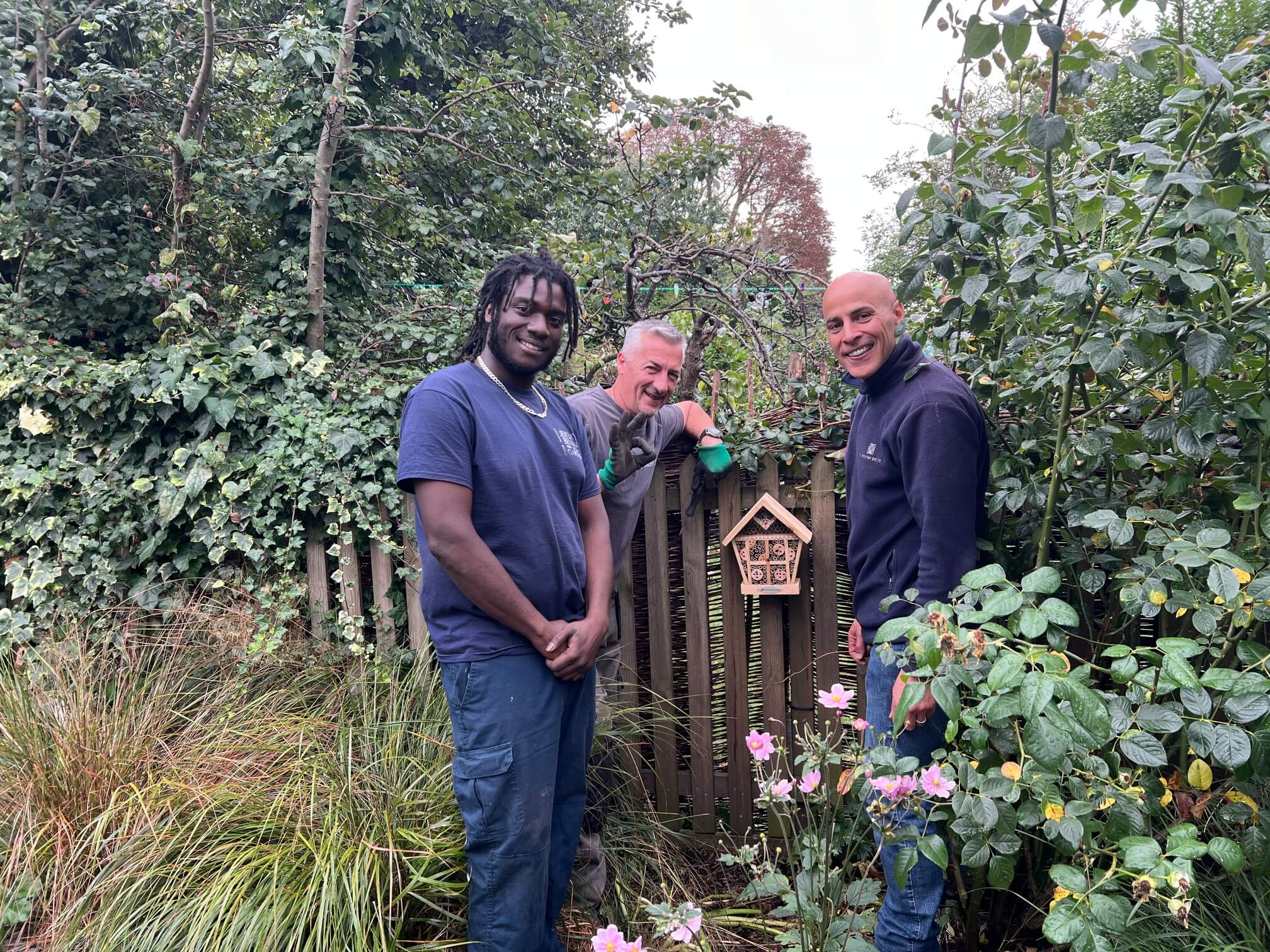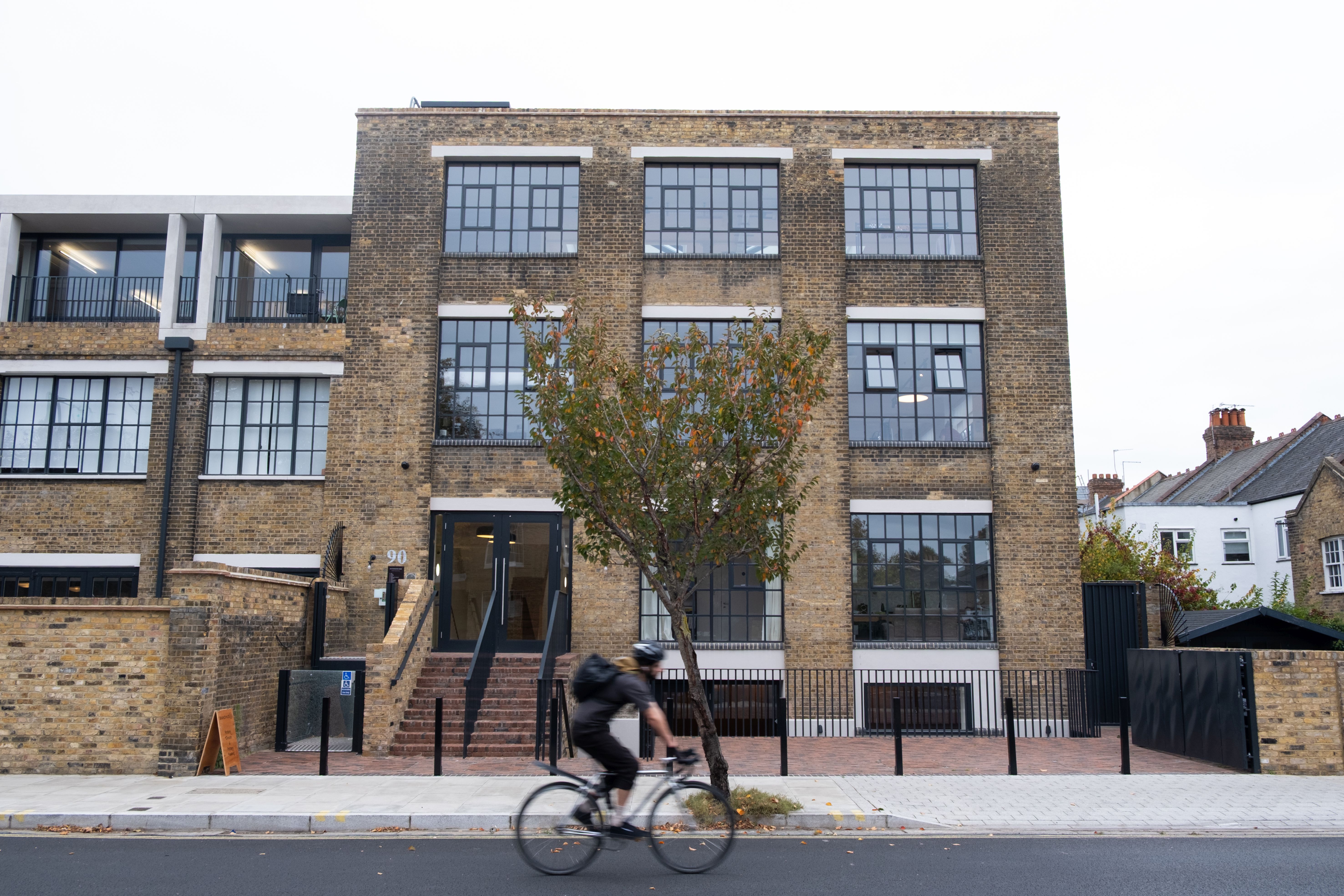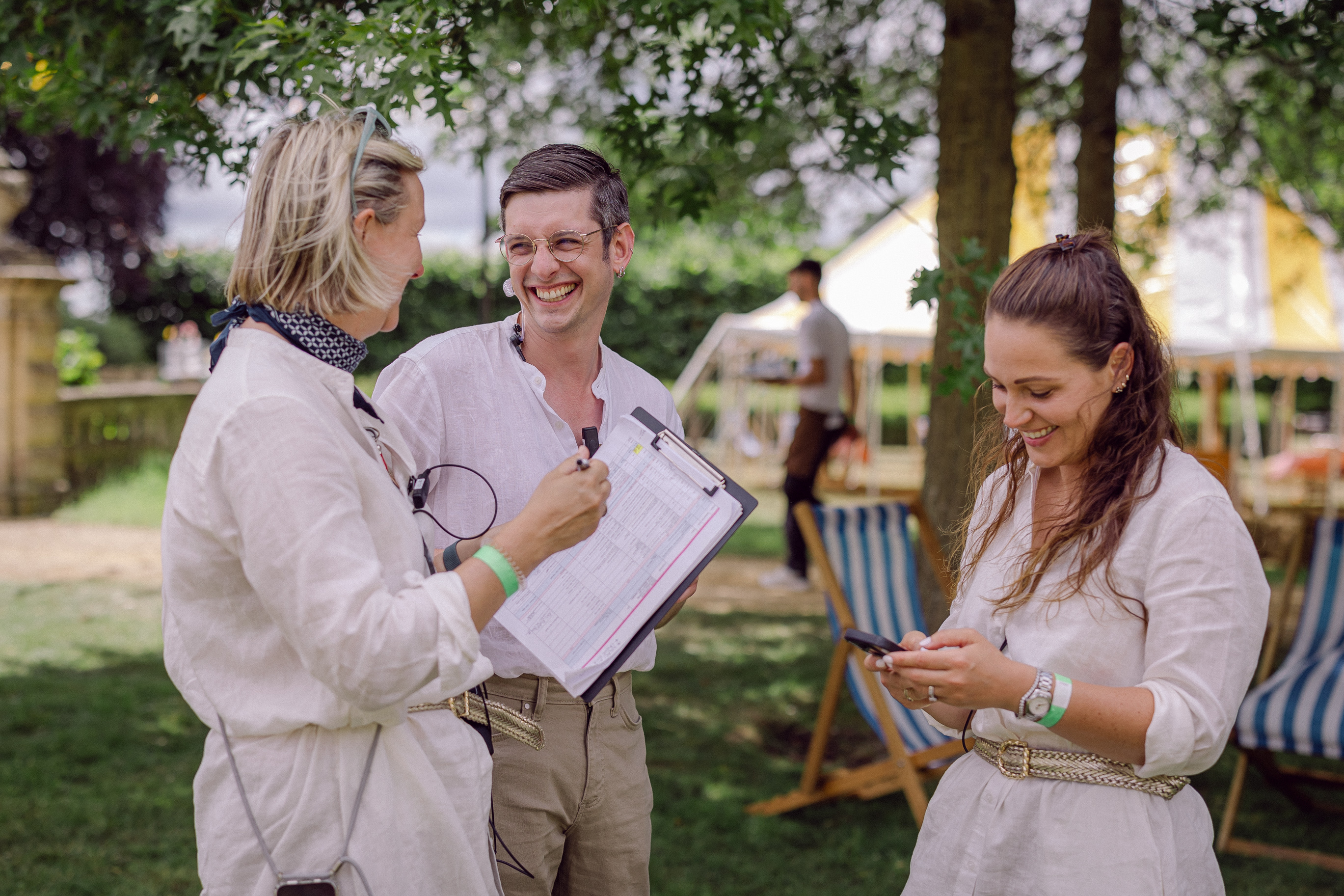26 September 2024
Creating room for nature
Creating room for nature is as important in an urban setting as it is in a rural one.
Our maintenance team works hard to ensure caring for the environment is always a priority.
Maintenance Manager, Duncan Urquhart, says doing the right thing by the natural world underpins the way The Benyon Estate is cared for. “Our Estate Manager, Edward Benyon, always encourages us to make sure that the gardens and trees on the Estate are well-maintained.
“It’s good for the wildlife and it makes for a nice environment for the people who live and work here”, said Duncan.
Installing ‘insect hotels’ is one of the latest environmental initiatives that the team has undertaken. “Some call them ‘bug hotels’ – but I’m not keen to call insects ‘bugs’” Duncan says. “Insects are more important than that; many are pollinators and others are a food source for birds and other creatures.”
We’ve ordered carefully constructed insect hotels from the National Trust and installed them wherever is appropriate when garden maintenance is being carried out, so long as tenants are agreeable.
The National Trust Apex Insect House has a variety of shelter types and provides habitats for a range of species including lacewings, ladybirds and even some butterflies. Solitary bees also build their nests in the bamboo tubes that form part of the structure.
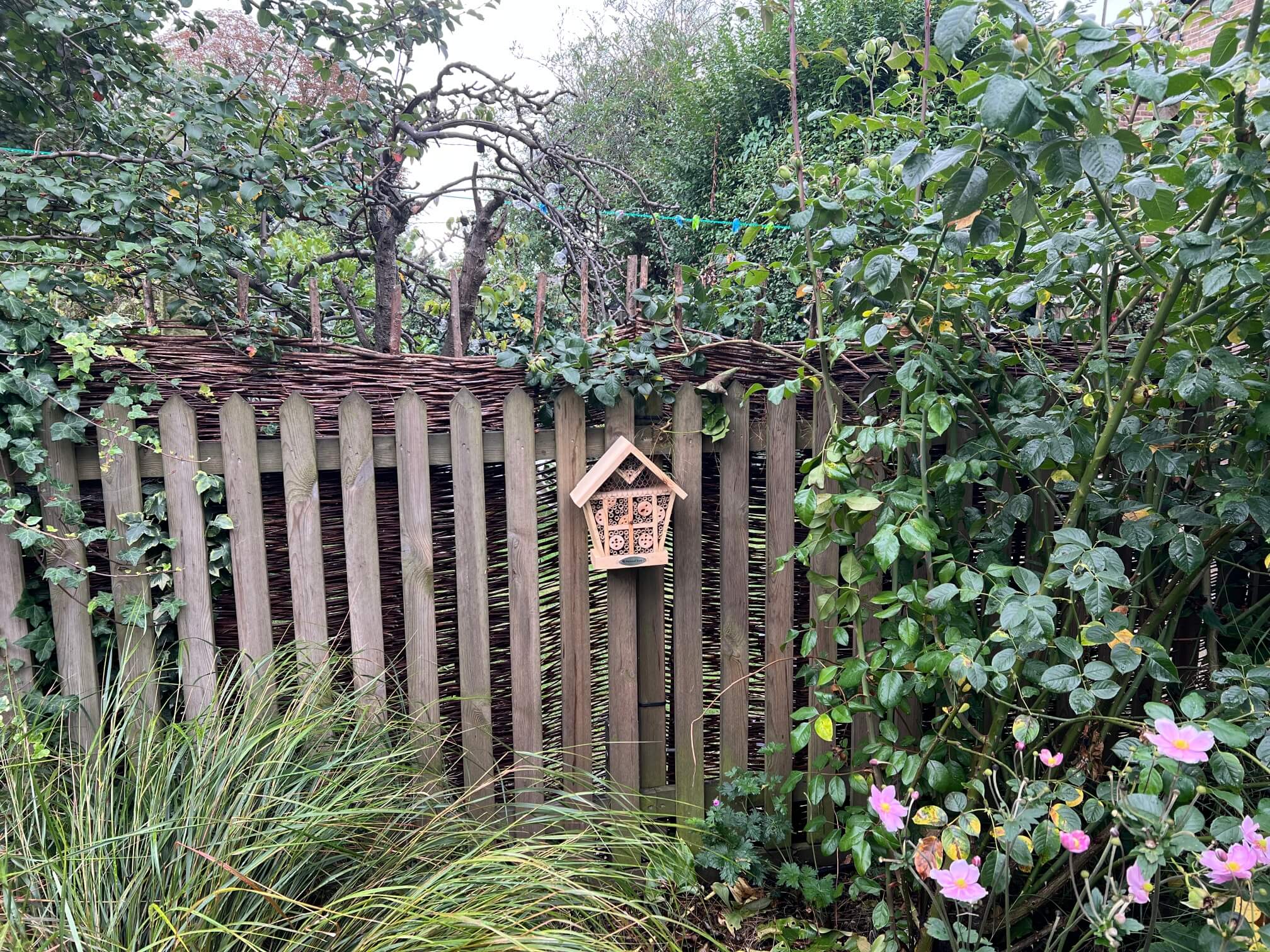
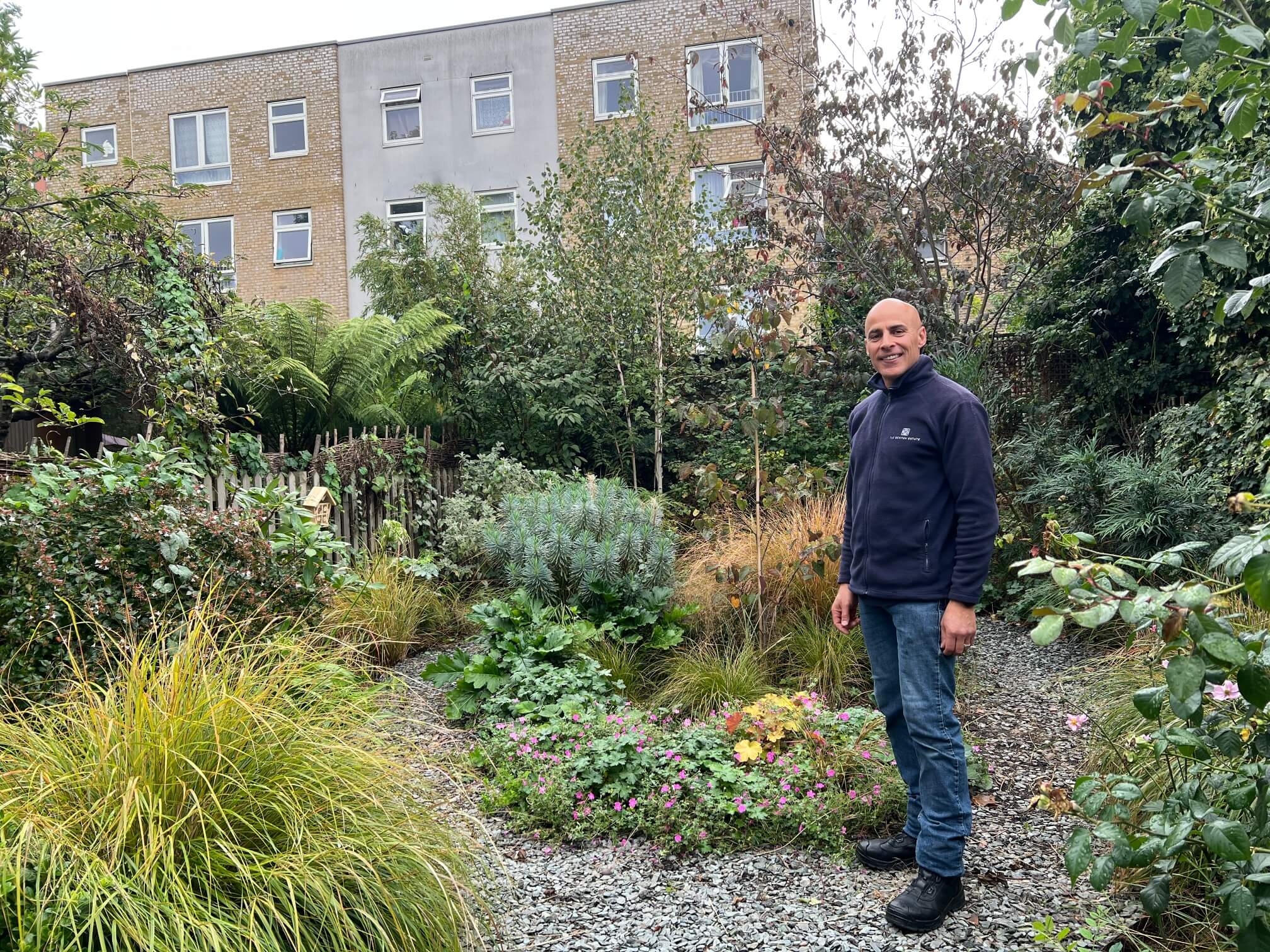
An important asset on the Estate are the trees. Duncan says whenever one has to be felled, because of disease or it poses a danger to the public, another tree is planted.
Duncan said trees do occasionally have to come down – although this year there have, so far, been no losses. Trees, shrubs and flowers also provide support for nature in the gardens on the Estate.
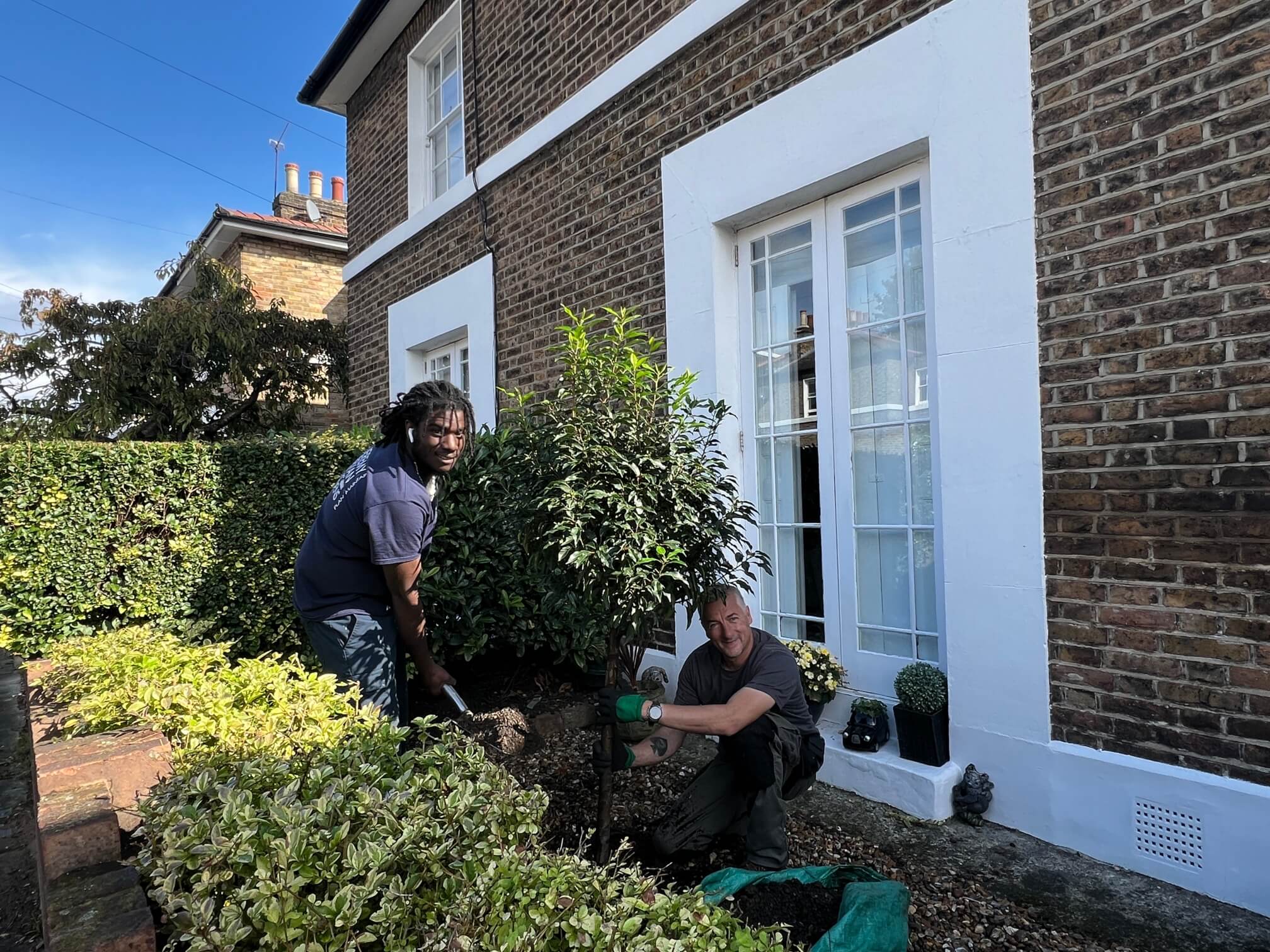
Birds are the one example of the wildlife that residents and visitors are almost guaranteed to see – thanks, in part, to the work of our maintenance team and the local Hackney Swift Group.
We work closely with the Swift Group to monitor the at risk species, which makes the annual journey from Africa to breed in more northerly areas and often favour urban environments.
Encouraging insect life in De Beauvoir helps provide the swifts with food, while installing swift boxes encourages them to come back, year-after-year, to the same spot to find somewhere to nest and rear young.
Duncan says whenever possible swift boxes are installed in appropriate areas on Estate buildings when maintenance is being carried out. It can sometimes take several years before swifts adopt the boxes, but they often provide homes for other birds in the meantime.
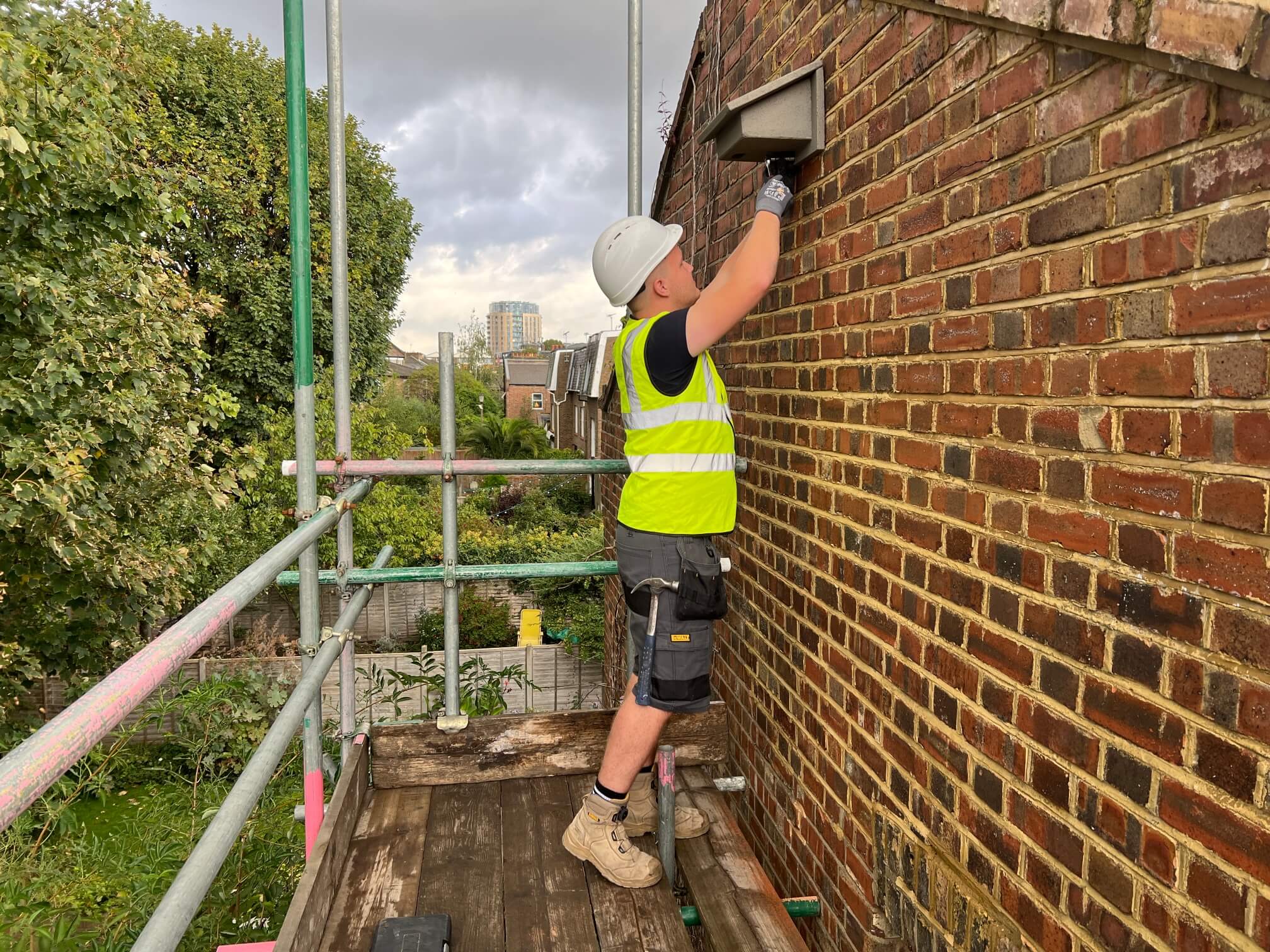
Earlier this year, we helped with the rescue of an immature swift that crash landed in a garden in De Beauvoir.
The bird was found in Southgate Road and we called upon the expertise of local swifts expert Mike Priaulx. Mike took the young swift, estimated at around three weeks old, to Cockfosters on the London Underground.
From there he met with another volunteer who drove it to a specialist swift rehabilitator at Wildlife Welfare in Stevenage, Herts. The rehabilitator, Caroline, doesn't usually name birds, but this little one she called Jaws — on their first meeting he engulfed her finger!
Young swifts can survive for days without food if bad weather interrupts their parents' supply of insects, but Jaws was severely dehydrated, and the priority was to get fluids into his tiny body.
With expert help, after just 24-hours Jaws was eating insects and well on the way to making a full recovery. Caroline said the swift was released on July 24th - weighing 42g - and was fighting fit and raring to go.
